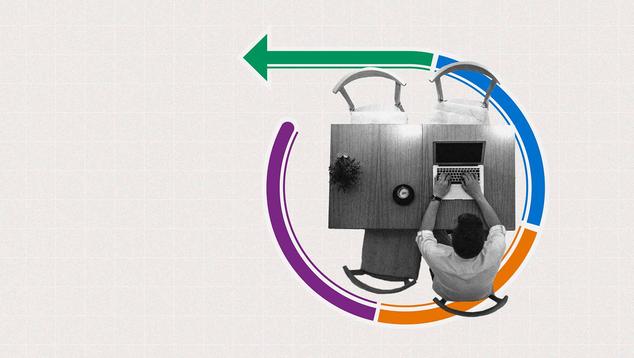The CliftonStrengths assessment is backed by more than five decades of research into how people perform at their best. It identifies the unique and natural ways each person thinks, feels, and acts and offers insights into how to develop these into strengths.
As more people take CliftonStrengths and Gallup adds ways to explore multiple results in their account, questions about retaking the assessment are becoming more common.
Here’s how Gallup approaches the idea of retaking CliftonStrengths and when it might and might not make sense.
When Retaking Might Make Sense
Most people do not need to retake the CliftonStrengths assessment. But in some cases, doing so could be reasonable:
- It’s been a long time: If you took the assessment more than 10 years ago — especially as a student — you may benefit from a new perspective as you’ve matured and gained life experience.
- Your first attempt wasn’t ideal: If you were distracted, rushed or didn’t take the assessment seriously the first time, your results may not reflect your true talents.
- You’ve experienced a major life change: Traumatic or life-altering events can shift how you see yourself and engage with the world.
- You took the assessment in a non-native language: Language affects clarity. Taking it in the language you know best can improve accuracy.
In these situations, the goal isn’t to get “new” results; it’s to get clearer results that more accurately reflect your talents.
When Retaking Might Not Make Sense
Some reasons for retaking aren’t helpful. Gallup does not recommend it if:
- You’re starting a new job and want results that seem to match the role better.
- You’re hoping to receive strengths that sound more impressive or desirable.
- You’re trying to influence the outcome by answering a certain way.
CliftonStrengths is not about who you want to be. It describes who you are. Its value lies in understanding and using your natural strengths — not in trying to change them.
Start With the Right Questions
If you’re considering retaking the assessment, first ask yourself:
- Why do I want to take it again?
- How old was I the first time?
- Was I focused and thoughtful when I took it?
- Has a major life event changed how I see myself or engage with the world?
Your answers can help determine whether a retake would offer meaningful value or if you’re looking for validation or change for the wrong reasons.
If You Choose to Retake It
Gallup’s platform now lets people keep more than one strengths result in their account. We made this change in response to feedback asking for a better way to track multiple assessment results.
Strengths Are Stable - That’s by Design
CliftonStrengths measures enduring talents. These natural tendencies — how you build relationships, make decisions, influence others or get work done — typically remain steady over time.
Gallup’s most recent global study of over 57,000 individuals who retook the assessment found that results were strikingly stable. The test-retest reliability score of the full profile is 0.73 over a six-month interval. For comparison, this meets or exceeds the standards of many other widely accepted psychological assessments.
In simple terms, most people who retake the assessment will see similar results. Some changes in theme order may occur, but the dominant patterns — the core of who you are — usually stay the same.
Final Thought
CliftonStrengths is not about chasing a perfect profile. It’s about understanding what makes you uniquely powerful and learning to lead with it every day. Whether you take the assessment once or more than once, the goal stays the same: to name, claim and aim your talents for greater performance, wellbeing and growth.
